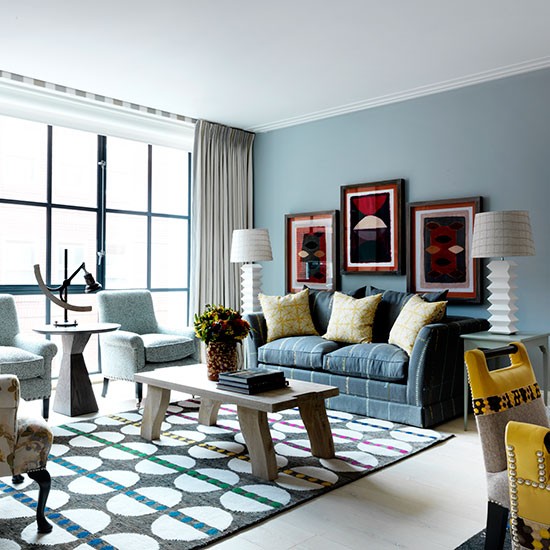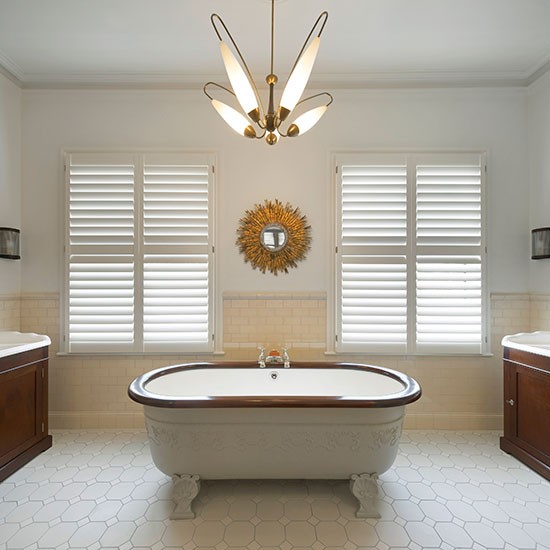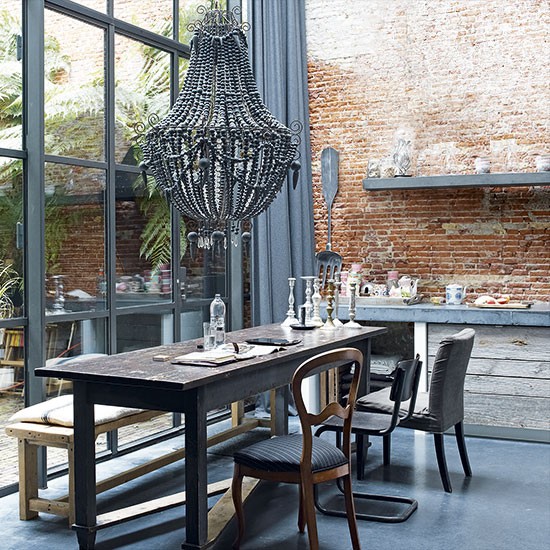7 things to know before choosing your lighting
A fitting doesn't have to be big and bold to add wow-factor to a scheme. Just by being creative with shape, proportion, volume and materials you can instantly transform your room.

We asked Sarah Hills creative director of Porta Romana, to share her top tips about choosing the right lighting designs for your interior.
1. Any light fitting will have two personalities, lit and unlit, so a piece may only reveal its full potential when illuminated. Something subtle in the day may become far more exotic once darkness falls, casting wonderful rays and shadows, so consider its effect on a room at all times of the day.

Mirror image Symmetry is always pleasing, and these large decorative lights, along with the artwork and the side tables, create an excellent focal point. It's a clever trick, used in a suite in the Ham Yard Hotel designed by Kit Kemp. Lighting Envy's Zig Zag lamp is similar, available from Stokers.
2. A piece doesn't have to be large to be statement, it just has to be beautiful. If you want to have a stand-out piece, then don't let the rest of the room compete. The right proportion and colour will help it sit within the scheme.

Bathed in beauty Bathroom lighting need not be confined to spotlights. Instead look for a brave fitting that is a little out of the ordinary. This vintage Sixties pendant light makes a statement not only because of its elegant curves and unusual style, but also because it is a surprising addition to this space.
3. In my own home I have lighting from every possible period so don't be afraid to mix and match styles. I have some wonderful Fifties table lamps sitting alongside wall-lights from our most recent collection, Enchanted Forest. What do they all have in common? Good design. Any lighting that has design integrity should stand the test of time.
4.Wall lights perform many functions, not just illumination. If you are after drama then you have to consider how they look when lit. Another way to create a statement is to use the same fixture many times. A long corridor punctuated with a repeating shadow-form can look dramatic.

Rough-luxe look This decorative chandelier contrasts with the weathered kitchen furniture and industrial-style setting, adding another dimension to the space. The Mud Beaded Chandelier from Abigail Ahern, offers an edgy, modern glamour that suits the contemporary scheme
5. When it comes to proportion, most designers agree that you should up-scale, as a small lamp base or chandelier can look mean.

Up size Play with scale and proportion by opting for an oversized floor lamp such as this one - Anglepoise's Giant 1227 is a similar style. It's less obvious than going for a large pendant light; leave the ceiling rose without a fitting so the task lamp can take centre stage.
6. Being able to set differing lighting levels is really key with statement pieces. As with stage lighting, some areas will look better brighter, allowing others to fade to gentle pools. If budget is not a concern then using a Lutron circuit is a shortcut to achieving this, as you can programme different settings without having to fiddle with individual dimmers.
7. The first time I saw the Dale Chihuly light installation in the V&A my first thought was ‘Wow', closely followed by ‘How are they going to clean that?' If you don't happen to have a full maintenance team to hand like at the V&A, which is unlikely, you need to consider practicalities of owning a big chandelier from the outset. If it will show the dust, you need to know that you can reach it safely. Can you change the bulbs easily? If not, it might be worth considering an LED fixture or converting to LED bulbs.
******
Get the Ideal Home Newsletter
Sign up to our newsletter for style and decor inspiration, house makeovers, project advice and more.

Thea Babington-Stitt is the Managing Editor for Ideal Home. Thea has been working across some of the UK’s leading interiors titles since 2016.
She started working on these magazines and websites after graduating from City University London with a Masters in Magazine Journalism. Before moving to Ideal Home, Thea was News and Features Editor at Homes & Gardens, LivingEtc and Country Homes & Interiors. In addition to her role at Ideal Home, Thea is studying for a diploma in interior design with The Interior Design Institute.
-
 Will a conservatory add value to your home and how can you maximise it?
Will a conservatory add value to your home and how can you maximise it?This is what the pros say
By Amy Reeves
-
 I’ve been looking for a new signature scent for my home and The White Company's new fragrance is the exact summer holiday smell I needed
I’ve been looking for a new signature scent for my home and The White Company's new fragrance is the exact summer holiday smell I neededSantorini smells fresh, summery and sophisticated
By Kezia Reynolds
-
 How to remove algae from garden walls in five steps – and the cleaning product experts rave about for tackling it fast
How to remove algae from garden walls in five steps – and the cleaning product experts rave about for tackling it fastExperts share their top tips for getting garden walls algae-free
By Katie Sims